 Petzlover
Petzlover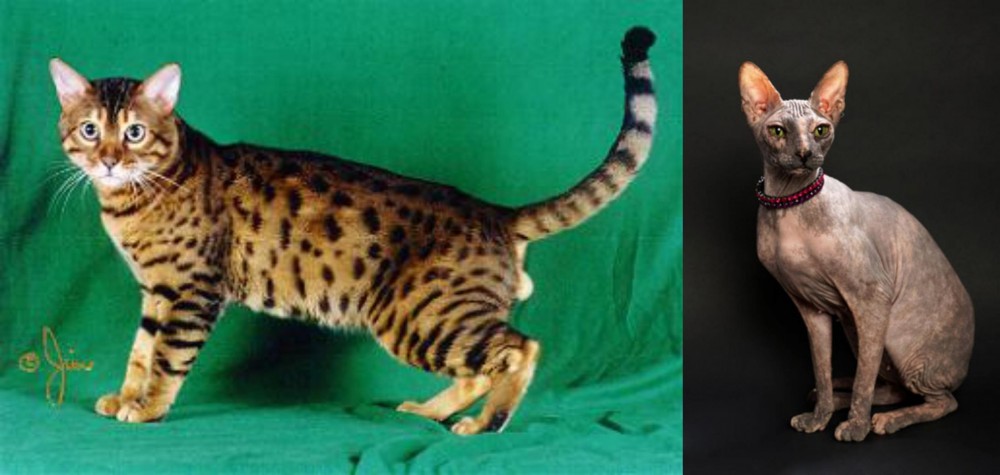 Bristol is originated from United States but Don Sphynx is originated from Russia. Both Bristol and Don Sphynx are having almost same weight. Bristol may live 5 years more than Don Sphynx. Both Bristol and Don Sphynx has same litter size. Both Bristol and Don Sphynx requires Low Maintenance.
Bristol is originated from United States but Don Sphynx is originated from Russia. Both Bristol and Don Sphynx are having almost same weight. Bristol may live 5 years more than Don Sphynx. Both Bristol and Don Sphynx has same litter size. Both Bristol and Don Sphynx requires Low Maintenance.
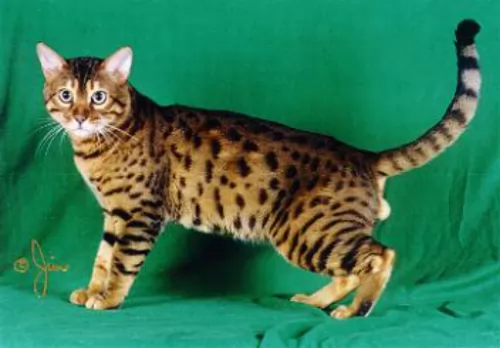 The Bristol cat hails from Texas and was developed during the 1980s, using a south American wild cat and domestic cats.
The Bristol cat hails from Texas and was developed during the 1980s, using a south American wild cat and domestic cats.
The Bristol cat isn’t well-known and in fact, its origins are shrouded in mystery.
The cat was recognized and admitted into the TICA (The International Cat Association. It is looked upon as a hybrid breed or a designer cat.
Nobody seems to know when the first Bristol cat was even bred. Because of its exotic nature, it is believed to be a cross between the American Shorthair and the margay or similar breed.
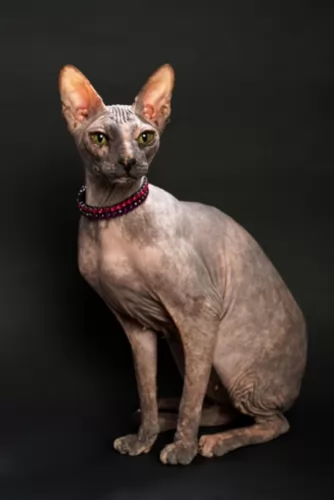 Of Rusian origin, the Don Sphynx is an interesting looking, hairless breed. The cat came about in 1987 when a hairless cat was seen in Rostov-on-Don, a Russian city.
Of Rusian origin, the Don Sphynx is an interesting looking, hairless breed. The cat came about in 1987 when a hairless cat was seen in Rostov-on-Don, a Russian city.
Cat breeder Elena Kovaleva rescued the kitten and it was at about 4 months of age that the kitten began to lose its hair. Later it was mated with a local tomcat and produced kittens which became the founding stock of the Donskoy breed.
The cat breed was recognized by the World Cat Federation in 1997 as well as the International Cat Association later on in 2005.
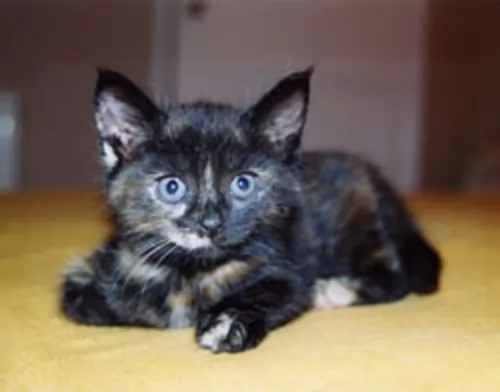 Bristol cats are medium-sized and muscular, powerful cats. They are much like Bengal cats. They have a smokey charcoal appearance while others have quite a bit of white on them.
Bristol cats are medium-sized and muscular, powerful cats. They are much like Bengal cats. They have a smokey charcoal appearance while others have quite a bit of white on them.
They also have rosettes and small rounded ears. The origins of the Bristol breed are uncertain but it seems a multi-colored cat was adopted by a United States Army captain in Australia.
The cat was so adored it was brought back when they returned to the United States. The cat was already pregnant and she gave birth to 2 kittens. The coats are shiny and short-haired with spots and lines of fawn, grey and brown mostly with the eyes being green.
The Bristol cat has a very pleasing disposition – being amicable, playful, and loving. They’re intelligent cats too but they need to spend time in solitude as well.
They definitely don’t respond and bond to everyone in the human family but tend to respond to only one person.
These Bristol cats are cunning and self-confident and because of their wild side, they will need a large area to roam. This is definitely not a cat for city life.
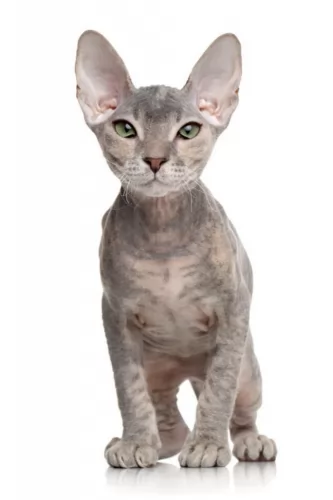 The Don Sphynx is a medium-sized cat known for its large ears and its long, webbed toes.
The Don Sphynx is a medium-sized cat known for its large ears and its long, webbed toes.
Their weight can be anything from 3 to 6 kg It’s a hairless cat but has different skin types that come in different shades – Flock, Rubber Bald, Velour and Brush.
The cat has this dominant hair loss gene that causes the coat they have at birth to thin and fall out. In fact, on close inspection, you’ll find that the cat isn’t entirely hairless but has a very fine layer of fuzz. The skin can be oily and the cat requires bathing fairly regularly.
These particular cats are also more susceptible to the cold and to sunburn. The legs of this cat are long and slender and they have a bit of a bow-legged appearance to them, but this is because of the barrel chest. The tail is long and hard.
These rare cats make excellent pets because they have all the characteristics needed that make them companionable. They are loving, companionable and playful. These are also intelligent, exploring cats which means you’ll need to provide them with games and toys that can keep them occupied.
They’re good with children and other pets and are even good for first-time cat owners. Breeders of these cats will tell you that they are even-tempered and amicable. They are gentle towards children and other pets.
Most of the time the cat has a calm demeanor but is highly sociable. As an entertainer too – he will do anything to get a laugh out of his human family.
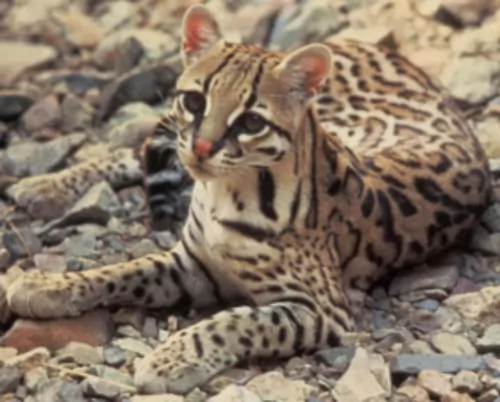 The Bristol cat is beautiful all right, but once again humans should just leave wild cats alone in the bush.
The Bristol cat is beautiful all right, but once again humans should just leave wild cats alone in the bush.
Mixing them with domestic cats doesn’t work in the long run, and many of these cats land up in shelters because of unruly behavior. The Bristol cat is part wild and it doesn’t seem to have a future although there isn’ enough information online to really know what its future is.
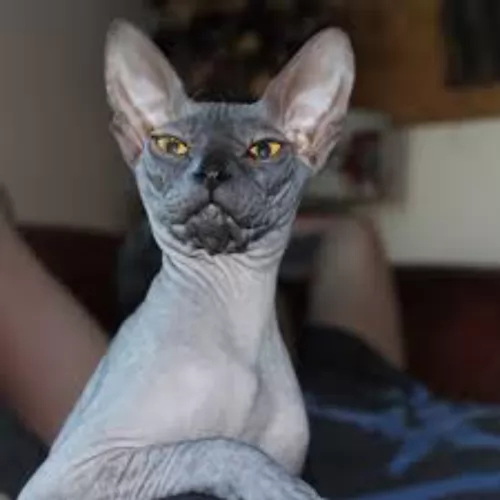 The sphynx cat is an energetic feline that absolutely loves the attention of its human owners. In fact, he will even be willing to show off to get some kind of reaction from his humans.
The sphynx cat is an energetic feline that absolutely loves the attention of its human owners. In fact, he will even be willing to show off to get some kind of reaction from his humans.
This is certainly a cat that has a sense of humor. They’re friendly, loving cats who like to even follow you around the house to be where you are. They are loving and loyal, curious, intelligent and active.
It’s a hardy breed and you won’t have many health issues to contend with. We know that they are prone to skin conditions and periodontal disease so watch out for these with this amazing, but unusual looking cat.
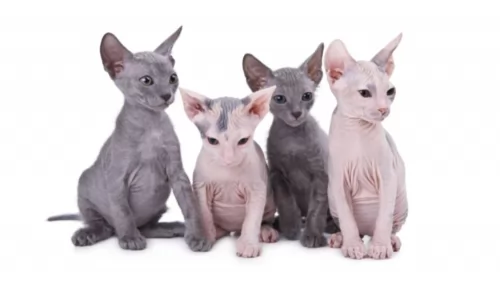 Hairless cats are prone to teeth and gum issues, and every Don Sphynx owner needs to regularly check their cat’s teeth as bad teeth can cause a lot of problems with health as well as discomfort with the teeth.
Hairless cats are prone to teeth and gum issues, and every Don Sphynx owner needs to regularly check their cat’s teeth as bad teeth can cause a lot of problems with health as well as discomfort with the teeth.
This cat breed is also fairly prone to skin problems. You will need to watch him for rashes and fungal infections. Remember, that this strange-looking cat also needs vaccinations and de-worming as well as regular veterinary health checks.
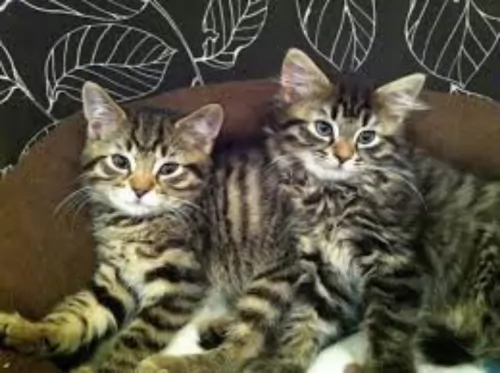 The diet of a cat such as the Bristol will include small rodents, however once domesticated, these cats will need a diet high in protein. The cat is a carnivore and to be healthy it will require high-quality premium commercial cat food that is appropriate for the age of your cat and his health status.
The diet of a cat such as the Bristol will include small rodents, however once domesticated, these cats will need a diet high in protein. The cat is a carnivore and to be healthy it will require high-quality premium commercial cat food that is appropriate for the age of your cat and his health status.
The best cat food has taurine in it, an essential protein that cats can only obtain through quality food. Your adult Bristol cat may prefer eating several smaller meals and this is actually a good idea as smaller frequent meals help towards greater urinary tract health.
If you want a healthy cat, you have to be diligent with providing such a cat with good food that is high in protein. If you aren’t sure, your veterinarian will be able to advise you on what to feed your new cat or kitten.
Factors such as age, size, activity levels, and health make a difference to what you feed your cat, how much and how frequently.
Get into a habit of reading and understanding the labels on the cat food packaging. Certainly, every cat requires taurine, an essential amino acid. You will also need to ensure fresh, cool water day and night.
Always take your pet to the veterinarian if he is lethargic ad disinterested in his food.
Most cats are clean, but you should brush or comb your Bristol cat regularly as the brushing helps keep your cat's coat shiny and also reduces the amount of hair during shedding.
Provide your Bristol cat with a dry, warm sleeping area and keep the bedding clean.
Your Bristol cat needs to wear a safety collar and an ID tag. These ID tags or an implanted microchip can help ensure that your Bristol cat is returned if he becomes lost.
Cats scratch, and cutting your cat’s nails will keep the nails blunt. Nonetheless, to prevent your furniture from being scratched, provide your cat with a strong scratching post covered with a rough material such as sisal or tree bark.
Bristol cats are independent and they don’t require any kind of special care. Certainly, they require large areas for their active lifestyle as well as a shallow pool for swimming.
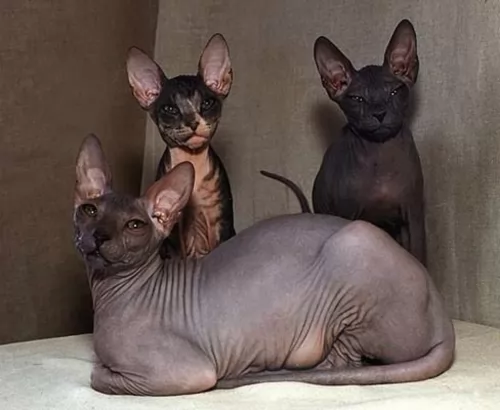 In spite of this being a hairless cat, it still requires frequent grooming, and yet you have to be careful that you don’t allow the cat to be bathed too often either.
In spite of this being a hairless cat, it still requires frequent grooming, and yet you have to be careful that you don’t allow the cat to be bathed too often either.
Have your cat spayed or neutered to avoid kittens that you don’t want. This is beneficial for the cat’s health.
This is a unique cat and when it comes to food, if you can afford it, go for the very best food there is. Good food contributes to good health and this cat is a carnivore and requires food high in meat protein.
Of course, it requires other nutrients and the best commercially manufactured cat foods will have a list of ingredients in them that are important to your cat’s health.
Of course, with diet, there are other important considerations to think about and one of these is the right quantity of food to maintain the cat’s ideal weight. Too much weight gain can put pressure on the cat’s joints and contribute to health problems.